Photo: Prince Williams/WireImage
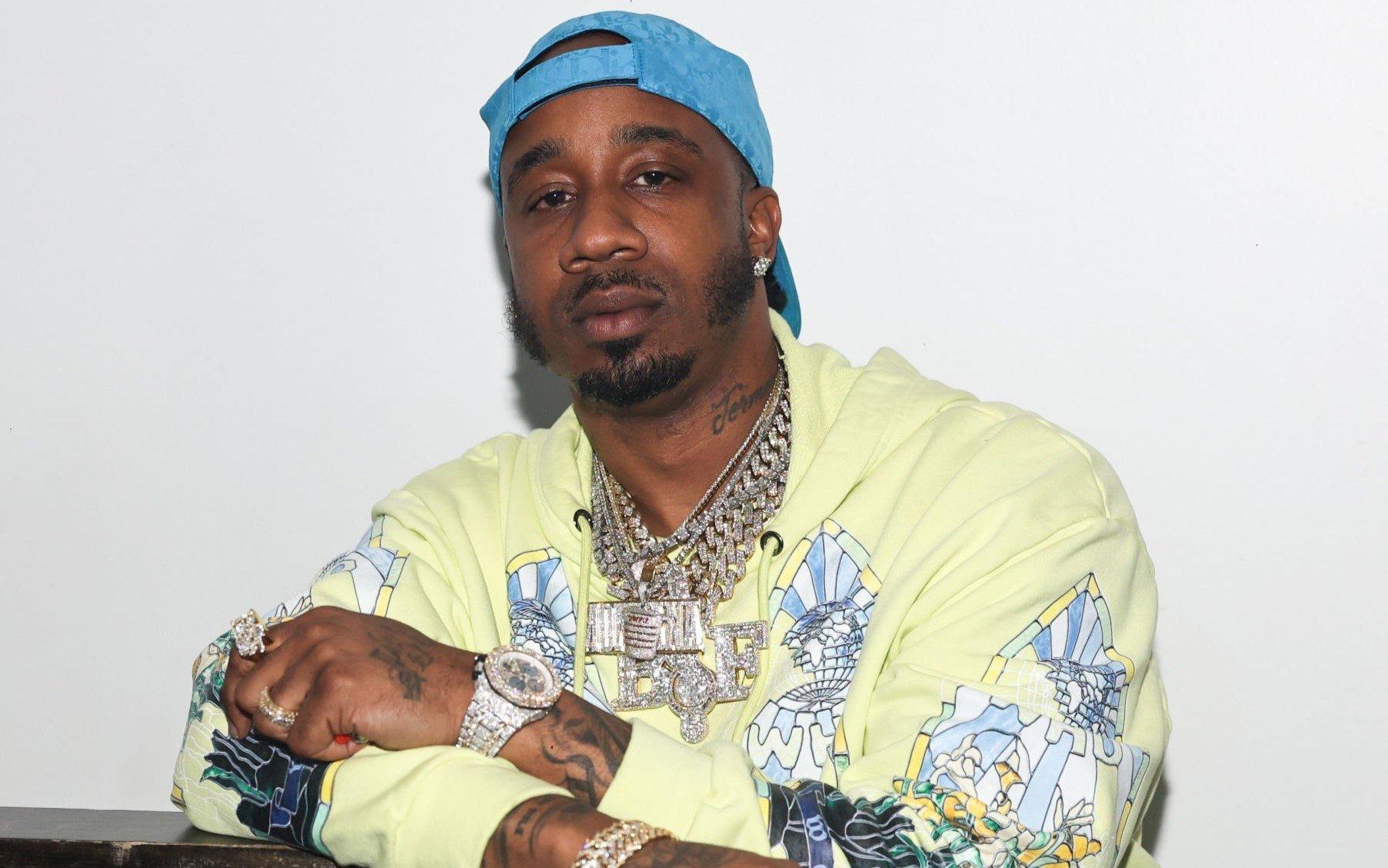
interview
Benny The Butcher Is Ready To Rise On 'Everybody Can’t Go'
Benny The Butcher is growing even further in the game. Ahead of his debut album with Def Jam Recordings, the rapper discusses the key to his confidence, working with Griselda producers, and future collaborations with the "Queens of R&B and hip-hop."
Benny The Butcher is prepared to spar with the biggest names in rap music to prove he’s one of the most prolific MCs in the industry.
"My confidence comes from my talent, and my talent comes from my preparation," Benny tells GRAMMY.com.
For the uninitiated, the East Buffalo rapper's brash delivery and unshakeable confidence could be perceived as arrogance. But for Benny and long-time fans of the Montana Avenue vet, he’s more than earned the distinction.
"If you see these dudes, they’re not confident because they’re not prepared to talk that talk. We stand behind this music, man," he continues. "I’m only on this interview with you because I rap good. I’m not on this interview with you because I’m dating an R&B chick, or because I have a Rihanna feature.”
Benny The Butcher is just days ahead of releasing Everybody Can’t Go, his debut album with Def Jam Recordings. Out Jan. 26, Everybody is Benny's major label launch but it's far from his first foray.
Off the heels of his critically acclaimed album Tana Talk 4 in 2022 — which boasted the viral hit "Johnny P’s Caddy" featuring J. Cole — Benny has kept a steady hand on the pulse of the rap game. Since then, he’s been heard on DJ Drama’s "Forever," G Herbo’s "Real Rap" and memorialized a Buffalo legend on the BSF project Long Live DJ Shay.
In that time, Benny, born Jeremie Pennick, has fashioned himself as the proprietor of "caviar drug rap," and he’s not afraid to remind you, either. He’s confident the release of Everybody Can’t Go will showcase his evolution as an artist.
"I’m on a higher level than I was. Everybody gets to watch my career elevate and it’s right in front of me," he says. "From the mixtapes, from the freestyles, featuring on Westside Gunn and Conway The Machine’s s–, and people share that journey with me. It’s high-level drug rap."
After switching his moniker from "Benny" to "Benny The Butcher," he veered away from rapping over other artists’ beats and started working with in-house Griselda producers like Daringer to round out his nostalgic, boom-bap sound that’s become synonymous with the Griselda imprint.
If the album’s lead singles "Bron," "Big Dog," and the title track are any indication, Benny isn’t deviating from the sound that made him. Tales of his past exploits are coated in Hit-Boy and Alchemist beats, with features from Griselda and BSF collaborators Westside Gunn, Conway the Machine, 38 Spesh, Lil Wayne, and others. But the method behind the music, Benny says, was all the same.
"I didn’t take no new approach, I just wanted to deliver some dope music and make sure I sounded how I felt," the 39-year-old MC says. "I feel like my sound is more refined and I switched my flow up."
To casual connoisseurs, Benny is a burgeoning star who’s aiming for wider success and acclaim. But for fans of the "Trade It All" lyricist, who saw his rise as the younger cousin of Westside Gunn and Conway the Machine on Griselda, he’s earned the right to share his vivid tales and signature brand of mafioso rap on a larger scale. And he’s already made good use of the label’s platform.
He’s rubbed shoulders with artists like J. Cole, connected with legends like Snoop Dogg for his Def Jam signing, and now has his sights on more R&B-oriented records. Benny wants to work with the "Queens of R&B and hip-hop," naming legends including SZA, Teyana Taylor, Coco Jones, Summer Walker, and others at the top of his list.
With his ascension, Benny is continuing to discover the perils of fame. He admits it’s challenging to deal with trolls and faceless critics on X (formerly known as Twitter). "You have to remind yourself it’s only a fraction of the people. Their voice is so loud on social media that it tricks the artist into thinking that’s the general population that feels like that, but it’s not," Benny says.
He’s also accepted the fact that not everyone is meant to be a part of his journey. The sentiment inspired the new album title and is reflective of his new attitude: Whether friend or family, hindering his growth is too hefty a price tag. As his career continues to take flight, others will be left at the terminal.
"Everybody Can’t Go is me realizing, Wow, it’s not for everybody even though I got this far to help provide opportunities," he said. "You could make someone the president or an A&R at Def Jam, but that doesn’t mean they’re ready for it. A lot of people don’t want to work, they just want what comes with the work — the lifestyle, the fame, and the money."
After the project’s release, Benny intends to expand as a legitimate businessman and do more executive production, starting with his roster of BSF talent, which includes Rick Hyde, Heem B$F, ElCamino, LoveBoat Luciano, and other members.
With Griselda, Benny already has his two cousins as counterparts, but Benny talked about having his daughter by his side during the album’s press run. He was impressed with her vocal ability and is open to exploring her musical side. "This is a family business," he says. "I encourage everybody to get into music because it’s therapeutic, it keeps you out of the way, and it’s lucrative if you do it right."
Of his growth as a solo artist, Benny says, "It feels like I’m on pace to keep doing great things." In the near-future, he's already making plans to dive into the film industry and drop another project to close out yet another big year in music.
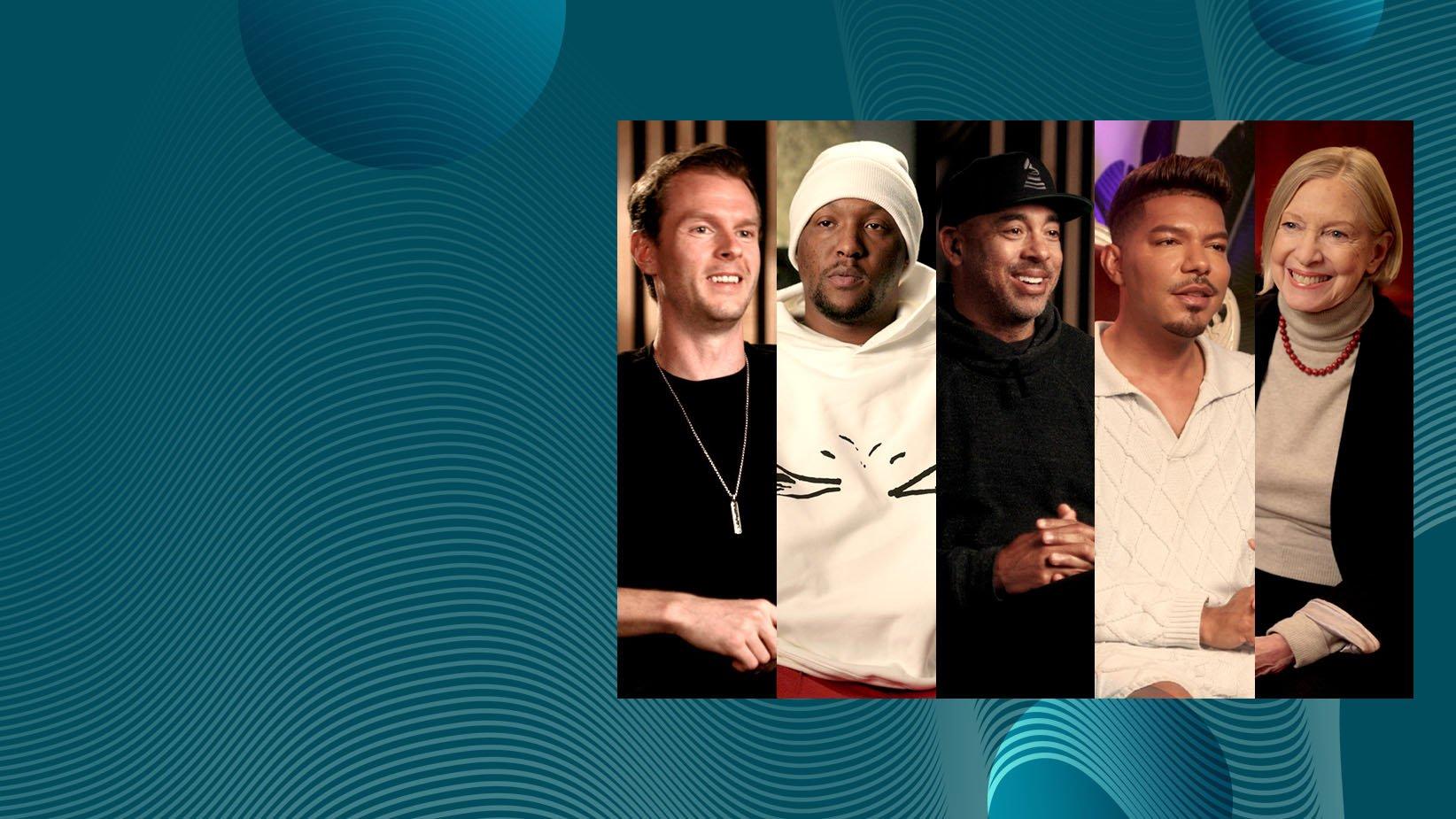
Photos Courtesy of the Recording Academy
news
The New GRAMMY GO Music Production Course Is Now Open: Featuring GRAMMY Winners Hit-Boy, CIRKUT, Judith Sherman & More
Enrollment is now open for GRAMMY GO's new specialization, "Music Production: Crafting Award-Worthy Songs," featuring appearances by GRAMMY winners and nominees. Learn music production and creative strategies from today's industry leaders.
Editor’s Note: Updated to add the Instagram Live video featuring Harvey Mason jr. and Stevie Mackey.
The Recording Academy continues its mission to empower music's next generation with the launch of its second specialization in the GRAMMY GO platform: "Music Production: Crafting Award-Worthy Songs."
This new course, a partnership between the Recording Academy and leading online learning platform Coursera, aims to bolster the technological and audio skills of music producers of all levels. The course, taught by Howard University professor and GRAMMY nominee Carolyn Malachi, features appearances by three-time GRAMMY winner and rap icon Hit-Boy, chart-topping and GRAMMY-winning producer/songwriter CIRKUT, artist and celebrity vocal coach Stevie Mackey, five-time GRAMMY nominee and Recording Academy CEO Harvey Mason jr., and 15-time GRAMMY winner Judith Sherman.
Enrollment for "Music Production: Crafting Award-Worthy Songs" is open now.
Mixing a unique blend of theory and practice, the course teaches music creators of all levels the advanced skills and tools to develop the mindset and confidence of an experienced producer and produce songs of the highest industry standards across all genres. Explore the wide-ranging roles of a music producer, develop critical listening and analysis skills, and master the technical aspects to create music and compositions that cut through the noise. The course's applied learning approach allows learners to sharpen their pre-production skills, utilize Digital Audio Workstations (DAWs) effectively, and produce vocals, instrumentals and samples collaboratively. Through critical listening exercises and discussions, learners will refine their abilities to deliver professional-quality demos.
To celebrate the launch, the Recording Academy hosted an Instagram Live session on Tuesday in which guests Harvey Mason jr. and Stevie Mackey discussed the evolving role of music producers, strategies for working with artists, key elements of top-notch productions, common mixing mistakes, tips for keeping the creative process fresh, and enrollment details for the course.
Building on the success of its first specialization, "Building Your Audience for Music Professionals," GRAMMY GO continues to offer industry-focused education tailored for emerging and established music creators and professionals alike. The innovative platform provides learners with real-time insights from leading music industry figures, ensuring the content remains practical and up to date. GRAMMY GO will also serve as an essential tool in the Recording Academy's global expansion into Africa and the Middle East, empowering music creators through enhanced training, bridging knowledge gaps, and fostering connections within the global music community.
Launched in April in partnership with Coursera, GRAMMY GO is the Recording Academy's first creator-to-creator platform, offering innovative courses tailored for both emerging and established music professionals. The initiative accelerates the Academy's global mission and reinforces its commitment to music education, providing a seamless bridge between all Academy initiatives.
Learn more about GRAMMY GO and the "Music Production: Crafting Award-Worthy Songs" and "Building Your Audience for Music Professionals" specializations.
Watch the Instagram Live session with Harvey Mason jr. and Stevie Mackey in full below:
More Music Education News & Initiatives
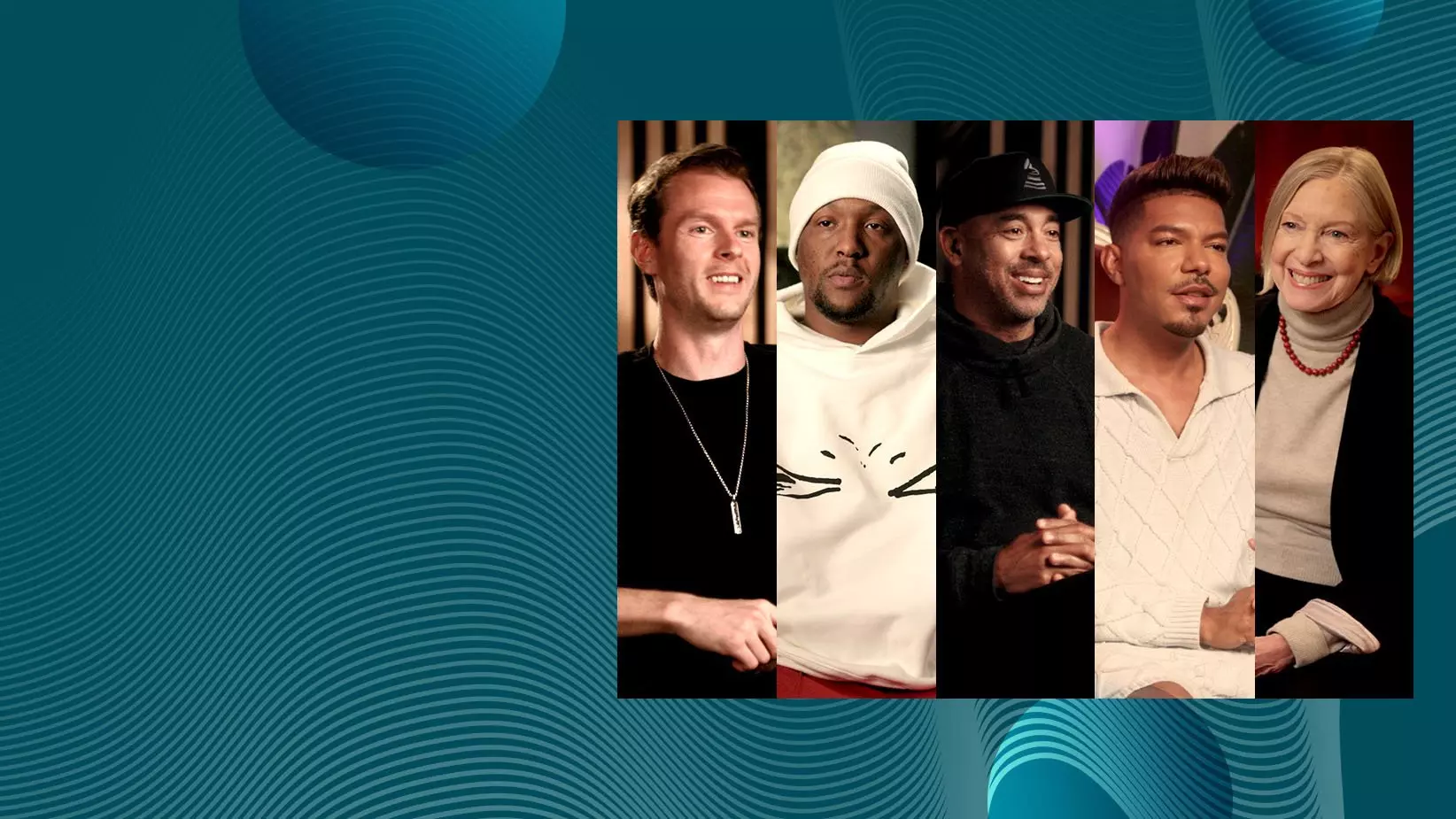
The New GRAMMY GO Music Production Course Is Now Open: Featuring GRAMMY Winners Hit-Boy, CIRKUT, Judith Sherman & More
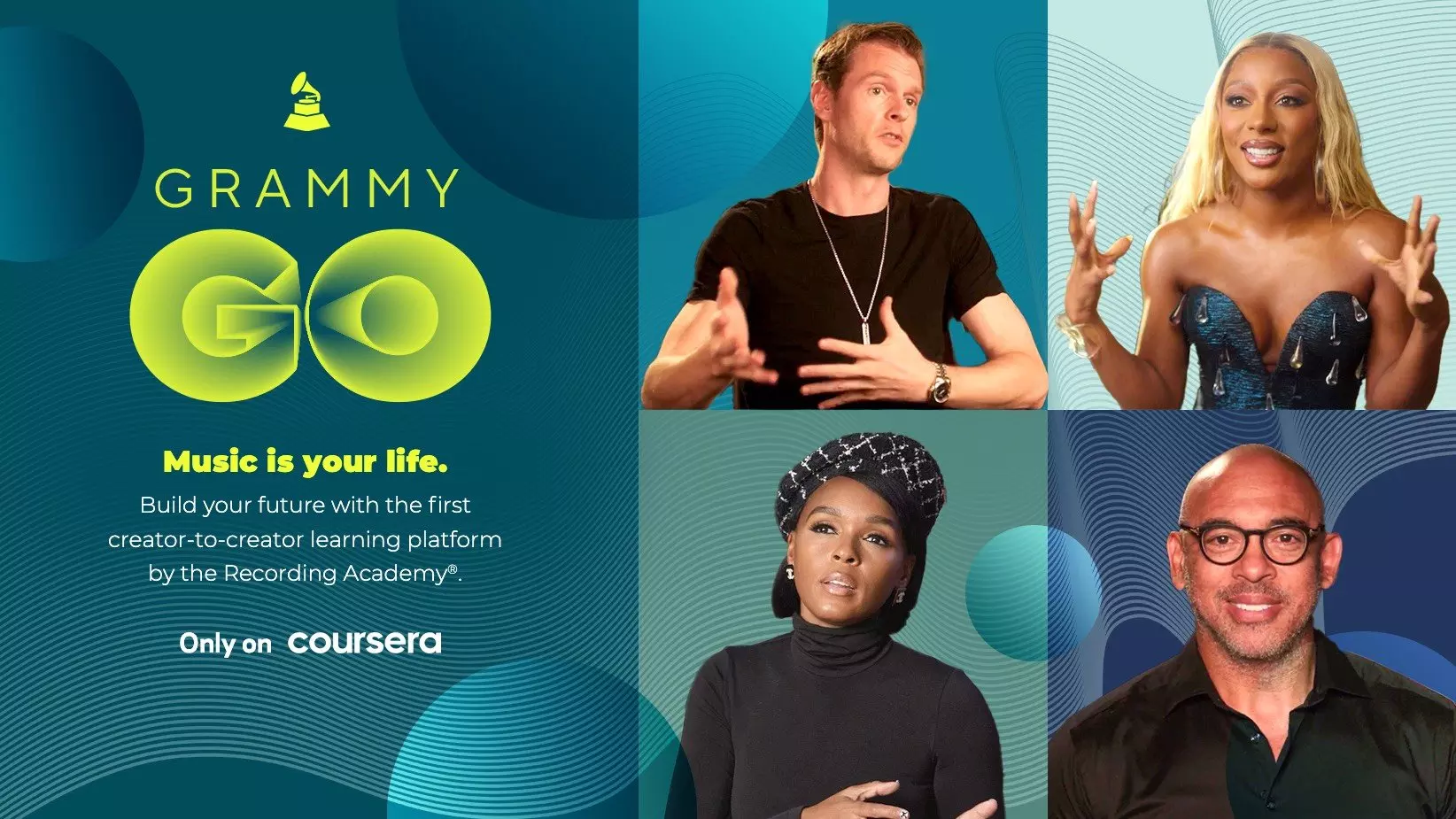
Recording Academy & Coursera Partner To Launch GRAMMY GO Online Learning Initiative
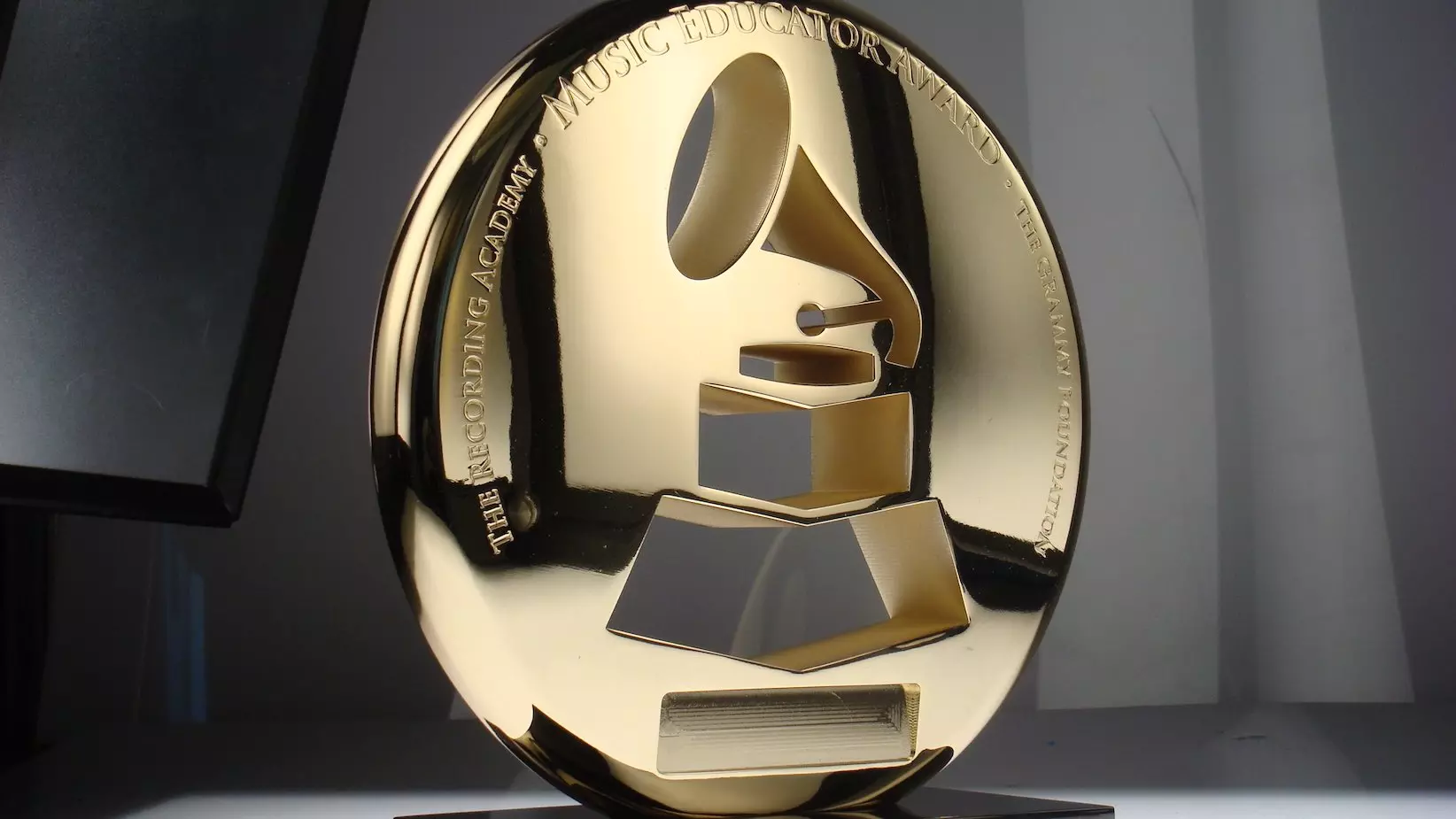
25 Semifinalists Announced For The 2024 Music Educator Award

5 Music Teachers Share The Transformative Power Of Music Education
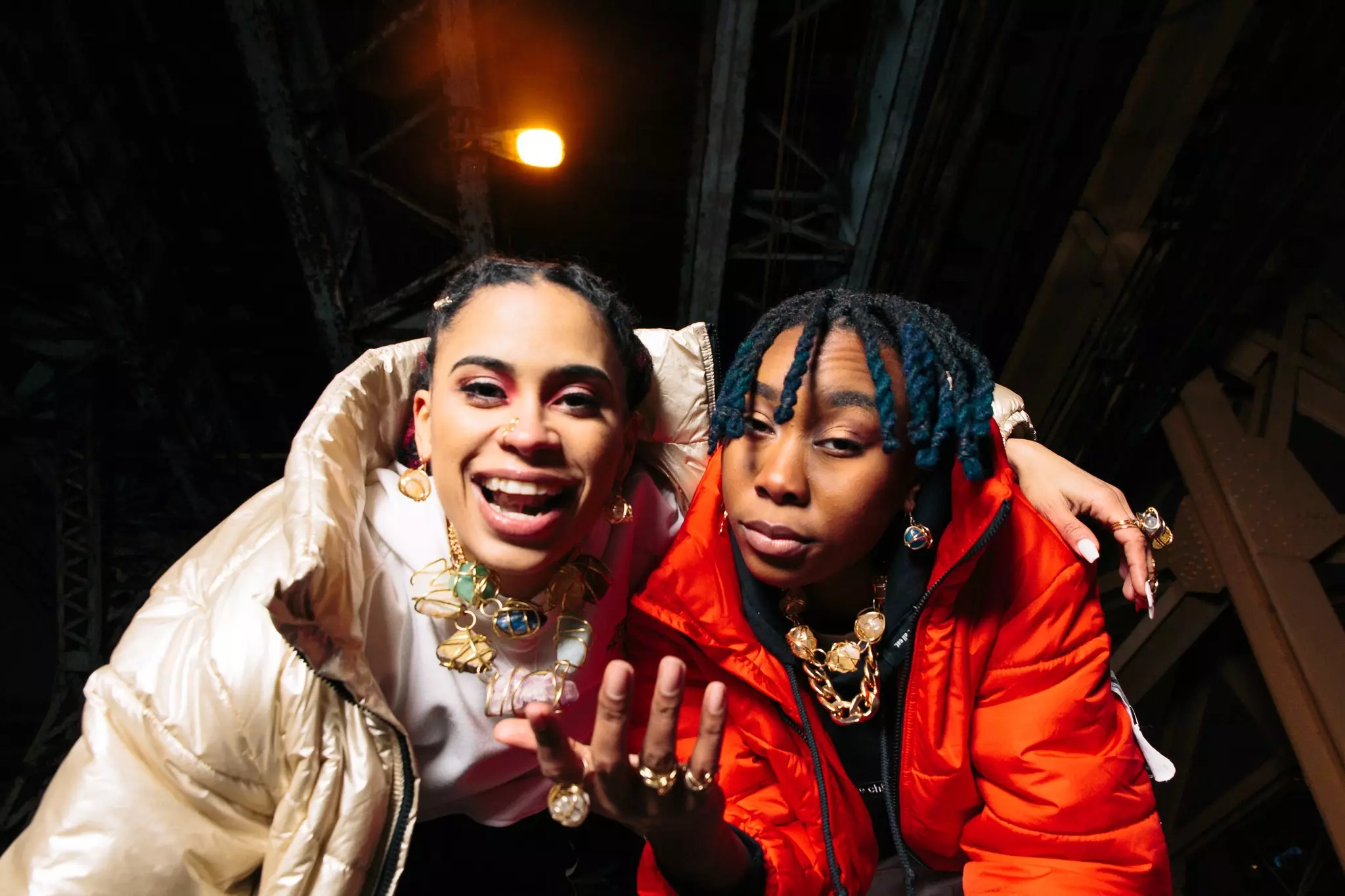
Meet Mother Nature, The Chicago Rap Duo That Teach & Live Self-Expression Through Their Miseducation Of HipHop Youth Workshops
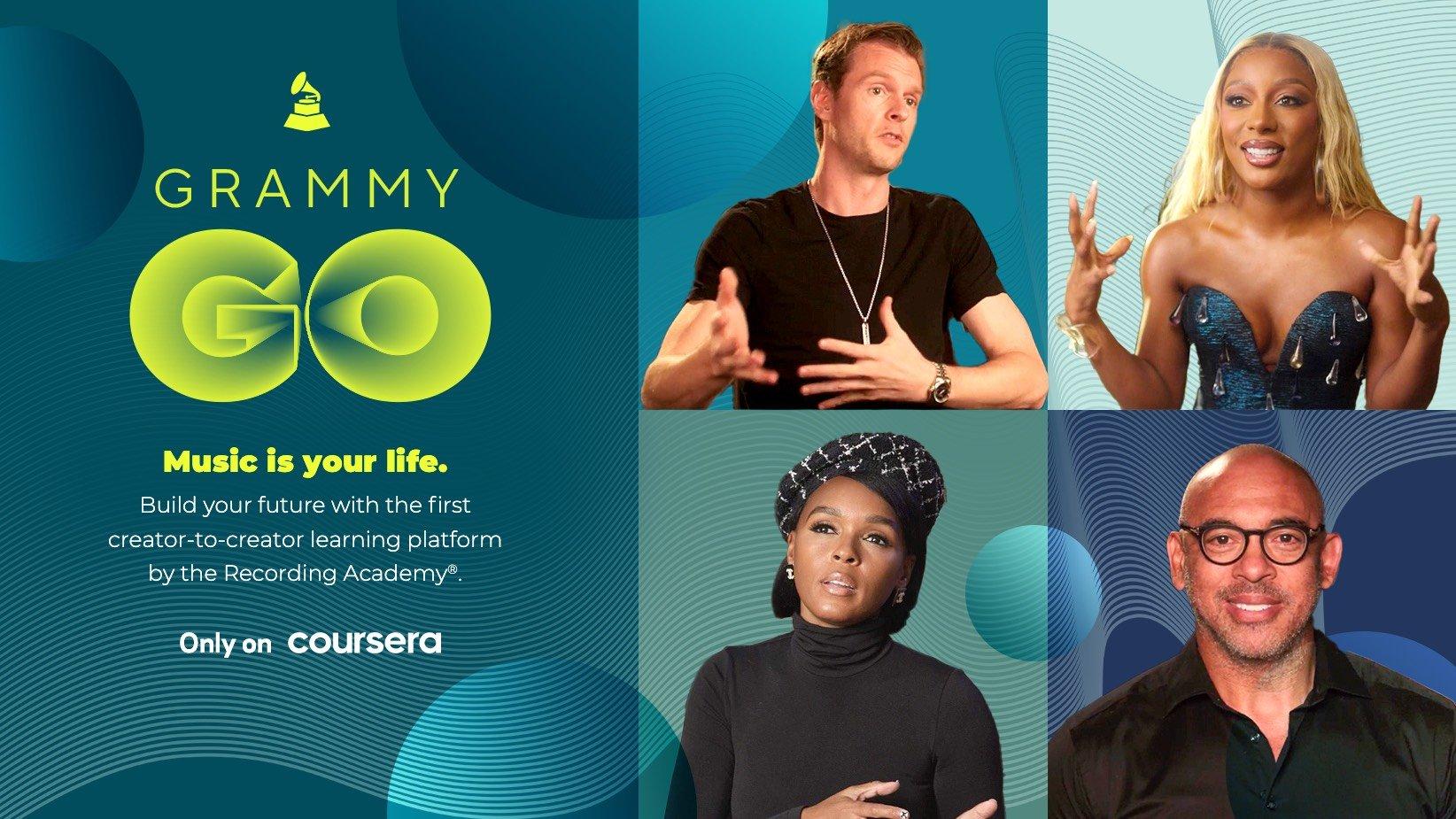
Graphic & Photos Courtesy of GRAMMY GO
news
Recording Academy & Coursera Partner To Launch GRAMMY GO Online Learning Initiative
Class is in session. As part of the Recording Academy's ongoing mission to empower music's next generation, GRAMMY Go offers digital content in specializations geared to help music industry professionals grow at every stage of their career.
The Recording Academy has partnered with leading online learning platform Coursera on GRAMMY GO, a new online initiative to offer classes tailored for music creators and industry professionals.
This partnership empowers the next generation of the music community with practical, up-to-the moment digital content that provides wisdom for both emerging and established members of the industry. Continuing the Academy’s ongoing mission to serve all music people, courses cover a variety of specializations tailored to creative and professional growth.
GRAMMY GO on Coursera includes courses taught by Recording Academy members, featuring GRAMMY winners and nominees and offers real-life lessons learners can put to work right away.
Starting today, enrollment is open for GRAMMY GO’s first Coursera specialization, "Building Your Audience for Music Professionals," taught by Joey Harris, international music/marketing executive and CEO of Joey Harris Inc. The course features Rock & Roll Hall of Fame inductee and five-time GRAMMY winner Jimmy Jam, 10-time GRAMMY nominee Janelle Monáe and three-time GRAMMY winner and the 2024 GRAMMYs Best New Artist Victoria Monét. This foundational specialization will help participants gain the skills, knowledge and confidence to build a strong brand presence and cultivate a devoted audience within the ever-changing music industry.
The partnership’s second course, launching later this summer, aims to strengthen the technological and audio skills of a music producer. "Music Production: Crafting An Award-Worthy Song" will be taught by Carolyn Malachi, Howard University professor and GRAMMY nominee, and will include appearances by GRAMMY winner CIRKUT, three-time GRAMMY winner Hit-Boy, artist and celebrity vocal coach Stevie Mackey, five-time GRAMMY nominee and Recording Academy CEO Harvey Mason jr., and 15-time GRAMMY winner Judith Sherman. Pre-enrollment for "Music Production: Crafting An Award-Worthy Song" opens today.
"Whether it be through a GRAMMY Museum program, GRAMMY Camp or GRAMMY U, the GRAMMY organization is committed to helping music creators flourish, and the Recording Academy is proud to introduce our newest learning platform, GRAMMY GO, in partnership with Coursera," said Panos A. Panay, President of the Recording Academy. "A creator’s growth path is ongoing and these courses have been crafted to provide learners with the essential tools to grow in their professional and creative journeys."
"We are honored to welcome GRAMMY GO, our first entertainment partner, to the Coursera community," said Marni Baker Stein, Chief Content Officer at Coursera. "With these self-paced online specializations, aspiring music professionals all over the world have an incredible opportunity to learn directly from iconic artists and industry experts. Together with GRAMMY GO, we can empower tomorrow's pioneers of the music industry to explore their passion today."
GRAMMY GO also serves as the music community’s newest digital hub for career pathways and editorial content that provides industry insights for members of the industry; visit go.grammy.com for more. For information and enrollment, please visit the landing pages for "Building Your Audience for Music Professionals" and "Music Production: Crafting An Award-Worthy Song."
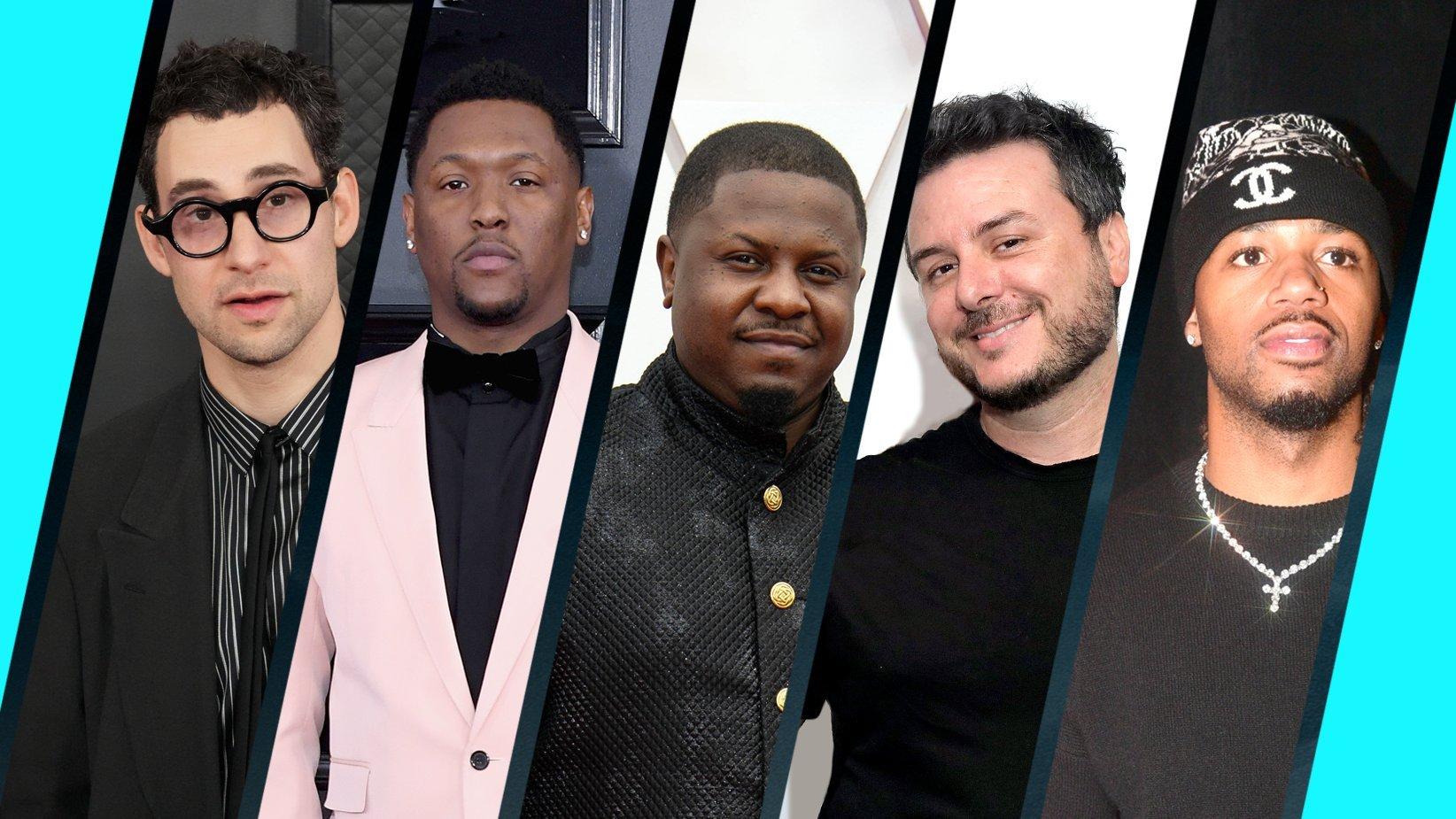
Photos: Jeff Kravitz/FilmMagic; Steve Granitz/WireImage; ABC via Getty Images; Amy Sussman/Getty Images; Prince Williams/WireImage
list
Here Are The Producer Of The Year, Non-Classical GRAMMY Nominees At The 2024 GRAMMYs
The five nominees for Producer Of The Year at the 2024 GRAMMYs have been pivotal to the landscape of pop, rock and hip-hop. Read on for how Hit-Boy, Jack Antonoff, D'Mile, Metro Boomin and Daniel Nigro have raised the bar over the past year.
The golden gramophone for Producer Of The Year, Non-Classical is perhaps the ultimate accolade for anyone whose talents are best served behind a mixing desk. Phil Ramone, Rick Rubin, and Max Martin are just a few of the legendary behind-the-scenes names who've received the coveted award since it was added to the ceremony in 1975. But winners such as Pharrell Williams, Mark Ronson, and Stevie Wonder have also proven that the Recording Academy are open to honoring those who can take center stage, too.
This year's crop have undoubtedly all been pivotal to the pop, rock and hip-hop landscapes of the past 12 months. Two-time winner Jack Antonoff continued on his mission to conquer the charts for all of eternity by joining forces with two of his superstar regular cohorts, while first-time nominee Daniel Nigro helped not just one but two teen stars parlay their early success into adulthood.
Hit-Boy and Metro Boomin both vied for the title of hardest-working rap producer with an exhausting list of credits. At the other end of the scale, D'Mile, focused most of his attention on just one burgeoning talent.
Here's a closer look at the nominees for Producer Of The Year at the 2024 GRAMMYs.
Jack Antonoff
Jack Antonoff will be hoping to replicate Babyface's mid-'90s dominance by becoming only the second-ever artist to win the Producer Of The Year, Non-Classical GRAMMY three times in a row. The pop maestro is on the cusp of history thanks to fruitful working relationships with two of the era's most prolific female singer-songwriters.
Antonoff has been recognized for co-producing the entirety of Taylor Swift's Midnights, the dreamlike concept album which spawned a record-breaking 10 U.S. Top 10 singles in the same week including Lana Del Rey collaboration "Snow on the Beach." The latter's equally alluring Did You Know There's A Tunnel Under Ocean Blvd also benefited from Antonoff's magic touch on all but three of its 16 tracks including a guest appearance from his own alt-pop outfit Bleachers.
Antonoff's production empire further grew this year when he entered the studio with another Swift-adjacent (albeit briefly) act, The 1975, for their fifth LP, Being Funny In A Foreign Language. But despite his chart ubiquity, the New Jersey native insists he has little interest in courting the mainstream.
"I do think that there's a misconception about what I do and what pop music is," he told The Face in September. "There's a certain group of people who think it's about appealing to the masses, [which is] not how I feel. I've never made anything hoping that everyone would like it."
Alongside his own individual accolades, Antonoff has previously shared GRAMMYs with his first band fun. (Best New Artist, Song of the Year for "We Are Young") Swift (Album of the Year for both 1989 and Folklore), and St. Vincent (Best Rock Song for "Masseduction" and Best Alternative Music Album for Daddy's Home).
But proving that all the awards glory hasn't gone to his head, Antonoff dedicated much of his acceptance speech last year to the unsung hero who joined him on stage: "I sit in the studio all day with one person — this is Laura, who engineers and mixes the records with us. We just sit there all f—ing day. We were there yesterday, we'll be there tomorrow, and this is all completely for Laura."
Dernst "D'Mile" Emile II
While last year's nomination came for his work with a modern R&B legend, Mary J. Blige, this year's is courtesy of a relatively new diva on the block.
Dernst Emile II, a.k.a. R&B/hip-hop producer D'Mile took the production reins on 10 of the 11 tracks on Victoria Monét's long-awaited full-length debut Jaguar II. The lush melting pot of disco, dancehall, funk, and soul firmly established the Ariana Grande hitmaker as a star in her own right.
It certainly lived up to the expectations that D'Mile, who also worked on Monét's Jaguar EP, put forward to GRAMMY.com last year: "We dug a little deeper. She is an artist that I feel really comfortable with. There might be a couple of songs that you wouldn't expect from her, and then there are songs that are just incredible records."
Of course, D'Mile has already made GRAMMY history having become the first-ever songwriter to pick up consecutive Song Of The Year awards, first winning with H.E.R.'s "I Can't Breathe" and then with Silk Sonic's "Leave the Door Open."
D'Mile sadly didn't get to accept the former in person due to COVID-19 protocols. But thankfully, the hitmaker did get to join Bruno Mars and Anderson .Paak on stage for the latter where he dedicated the award to his late Haitian vocalist mother Yanick Étienne (the same Philly soul throwback also picked up Record Of The Year and Best R&B Song).
When asked about his pioneering feat by Vulture, D’Mile still appeared to be in a state of shock: "Man, these past two — even three — years have been just a wild ride for me. I definitely didn't expect to set a record. Even when I heard that it was possible, I was like, Wow, really? No one's ever done that? It's just wild to me that I'm at the GRAMMYs, let alone winning..."
D'Mile better get used to the feeling. The New Yorker was also victorious at the 2022 GRAMMYs thanks to his contributions on Lucky Daye's Best Progressive R&B Album Table for Two. And this second consecutive nod suggests it's only a matter of time before Producer of the Year - Non-Classical is added to the trophy cabinet that also includes an Academy Award for Best Original Song.
Hit-Boy
From Ty Dolla $ign and Big Sean to Travis Scott and ASAP Rocky — name pretty much any major hip-hop star of the last 20 years and there's a good chance Chauncey Alexander Hollis Jr., a.k.a. Hit-Boy, has given them some audacious beats.
The Californian already has three GRAMMY Awards to his name, having co-produced Kanye West and Jay-Z's "N— in Paris," showcased his own lyrical flow on Nipsey Hussle's "Racks in the Middle," and worked on all 13 tracks on Nas' King's Disease.
Hit-Boy's prolific new partnership with the latter rap god has undoubtedly helped him pick up a second Producer Of The Year, Non-Classical GRAMMY nomination, specifically his work on the two Magic sequels and King's Disease III. Likewise, his production skills on Dreamville's "Just Face It" and Don Toliver's "Bus Stop."
But the aptly-named beatmaker has also been celebrated for his own headlining efforts, including the Surf and Drown mixtape, the Alchemist collaboration "Slipping Into Darkness," and the Victims and Villains LP recorded alongside nu-soul crooner Musiq Soulchild, all of which arrived within the space of just three months.
Hit-Boy's work schedule may sound truly exhausting, but as he told GRAMMY.com in 2020, the star thrives on keeping busy: "It's too many artists trying to tap in for me to just work on one thing at a time, but I still am able to give my focus. It's like quantity and quality. I don't know how to explain it right now."
And Hit-Boy will certainly be appreciative if it proves to be second time lucky. Discussing his first Producer of the Year nod, he told Variety, "It would definitely be a dream come true … Just to be recognized is amazing, but to win? That would be major, man. Just for the people that have followed my story and know how much I've stayed down, that would be major."
Metro Boomin
Perhaps surprisingly, considering he's been behind Hot 100 No.1s by Migos and The Weeknd, trap genius Metro Boomin is the only Producer Of The Year, Non-Classical nominee this year without a GRAMMY already to his name. In fact, he's only ever received one nomination — Album of the Year for his sole contribution to Coldplay's Music of the Spheres.
Could 2024 be the year this changes? Well, it wouldn't be for the want of trying. The man born Leland Tyler Wayne has laid down beats for everyone from Travis Scott ("Til Further Notice") and Lil Durk ("War Bout It") to Drake ("More M's") and Young Thug ("Oh U Went") over the period of eligibility.
And like his fellow studio wizard Hit-Boy, Metro Boomin has also been recognized for his own material including his Spider-Man: Across the Spider-Verse cuts "Am I Dreaming" and "Calling," and three tracks from his sophomore Heroes and Villains ("Creepin'," "Superhero," and "Trance"),
Luckily, the St. Louis native seems likely to take it in his stride if he once again misses out on a golden gramophone. Metro Boomin was seen as a shoo-in for the 2018 Producer Of The Year category but the award went to Greg Kurstin. The hitmaker told Billboard, "You know, we don't be tripping off stuff like that. We just keep it moving, man … I'm just here to service the people. As long as that happens what I do, that's really all that what matters to me."
That doesn't mean Boomin believes he's unworthy of the accolade, though, with the star recently telling Ebony, "I knew I was here to stay before I even really got here, because I knew how much time I was putting into this…..I'm always trying to outdo myself. This is one of the first times in my career that I can really feel the ascension; I can feel something happening, and I'm well aware of it."
Daniel Nigro
Mid-2000s emo rock outfit As Tall as Lions might not have got anywhere near the most prestigious night on the music industry calendar. But frontman Daniel Nigro is now racking up the GRAMMY nominations as one of the go-to guys for Gen-Z.
All four of the New Yorker's previous nods were for his work with Disney Channel graduate Olivia Rodrigo, including the Best Pop Album category in which Sour reigned supreme. But in his first Producer Of The Year, Non-Classical showing, Nigro has also been acknowledged for collaborating with some other cool names.
That includes Chappell Roan, the dark-pop singer-songwriter who called on Nigro to produce the entirety of her debut album The Rise and Fall of a Midwest Princess. Irish troubadour Dermot Kennedy ("Divide") and former Chairlift vocalist Caroline Polachek ("Welcome To My Island") have also helped the one-time jingle writer to build a GRAMMY-worthy discography over the past 12 months.
Of course, it's Nigro's second effort with Rodrigo, Guts, that may best put him in contention for the big prize. He produced and co-wrote all 12 tracks on the pop-punk chart-topper, a committed approach he told Billboard is far preferable to being a songwriter-for-hire: "I know I'm definitely a pop producer [now], but I think I struggled a long time with that whole, 'You're part of a record' … I never felt satisfied doing just a song or two with an artist. I always felt detached. I come from a world where when something happens I want to call you up and celebrate the wins and vent about the losses and be a part of it [all]."
Nigro seems keen to continue guiding the careers of those young enough to be his kids. "I think it's just about being honest and talking about what's going on in their lives," Nigro replied when asked by Vulture what he admires about artists such as Rodrigo and Conan Gray.
"I think in their generation, something that they gravitate towards is the specificity of lyrics and honesty, which is always interesting," he continued to Vulture. "Whereas our generation was much more about metaphor and vagueness in lyrics, something that's left for interpretation, you know? It seems this generation is much more into something that's right on the nose."
The 2024 GRAMMYs, officially known as the 66th GRAMMY Awards, returns to Los Angeles' Crypto.com Arena on Sunday, Feb. 4, 2024, and will broadcast live on the CBS Television Network and stream live and on-demand on Paramount+ at 8-11:30 p.m. ET/5-8:30 p.m. PT.
The Recording Academy and GRAMMY.com do not endorse any particular artist, submission or nominee over another. The results of the GRAMMY Awards, including winners and nominees, are solely dependent on the Recording Academy’s Voting Membership.
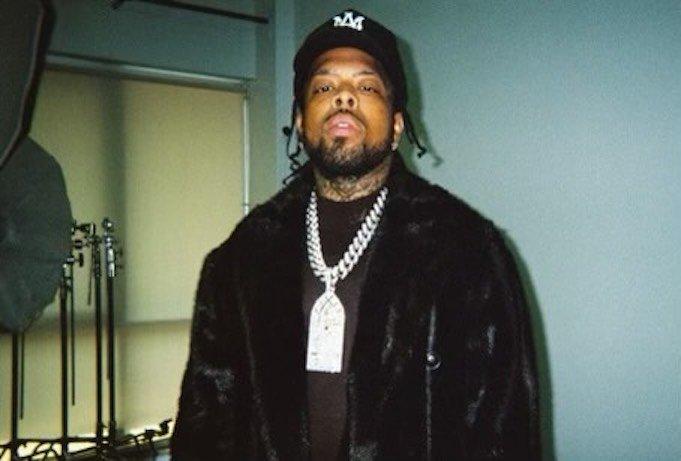
Photo: Prolifickid
interview
Westside Gunn On How Virgil Abloh & "Coming To The End" Of His Rap Career Inspired 'And Then You Pray For Me'
A self-proclaimed "super-vet" of the rap world, Westside Gunn knows his time as a rapper is nearing its finale — but first, he wants to "give you a journey" with his new album, 'And Then You Pray For Me.'
When Westside Gunn refers to himself as "the king of the underground," it's not hyperbole. The veteran rapper has spent the last decade-plus providing hip-hop with a streetwise, neo-boom-bap style that echoes heavily in the music of today. And as the founder of independent hip-hop label Griselda (and its related rap collective), Gunn's influence is felt through stars like his brother, Conway the Machine, his cousin, Benny the Butcher, and the enigmatic Mach-Hommy.
But Gunn considers himself more a curator than a musician. He is obsessed with fashion and high art, more prone to mention going to see opera or buying a painting than jumping into a rhyme cipher.
All of Westside Gunn's obsessions come together on his new album And Then You Pray For Me. The rapper is positioning the project as a sequel to his 2020 LP Pray For Paris, which was inspired by Gunn attending a Paris Fashion Week runway show as a guest of the late Virgil Abloh. Abloh was the art director for both albums, which feature figures from iconic artworks laden with Gunn's signature chains; And Then You Pray For Me uses both the Mona Lisa and Caravaggio's The Entombment of Christ.
While the 21-track album features plenty of Gunn's trademark neo-boom-bap sounds, he updates things a bit by including some songs that have a trap music influence. It contains stellar guest turns from old friends like Conway, Benny, Stove God Cooks, Rome Streetz, and Boldy James. But there are also surprising appearances from artists you might not normally associate with Griselda — Jeezy, Rick Ross, Denzel Curry, and Ty Dolla $ign.
Gunn has recently referred to And Then You Pray For Me as his last album, but don't expect him to slow down. He's making movies, planning big moves in the fashion world, and continuing to guide the careers of other artists.
GRAMMY.com caught up with Gunn as he was, naturally, shopping in New York City's SoHo neighborhood ("I'm over here on Mercer [Street], so it's Lanvin, Balenciaga, Marni, Bape — it's all right here," he boasts). We discussed his creative pairing with Abloh, why he's really a curator at heart, and his views on underground rap's evolution over the past decade.
The conversation has been edited for length and clarity.
Not to start on a super serious note, but as I was preparing for this conversation, I realized that we just passed the 17-year anniversary of the murder of your cousin, rapper Machine Gun Blak. If he could see you now, and if he could hear the new album, what do you think he might say?
First of all, he'd be all on [the album]. But he'd be super proud, man. Even when he's not here, he's one of my biggest fans, I feel like. His energy is Westside Gunn. Westside Gunn is a perfect example of Machine Gun Blak — just the raw, the grittiness. The grimy part of Westside Gunn, that's Machine Gun Blak. That's his spirit.
But I think he would love this album. It's a great piece of work. It's my favorite that I ever worked on. Out of all my projects ever, this is the most fun I ever had making one.
Does it feel like it's been 17 years since he died?
Nah. It doesn't seem like 17 years, honestly. And it's crazy because I just went to his grave site. I remember [the day he died] like it was yesterday. I vividly remember that day — what was going on, what I was doing, where I was going, everything.
Where were you when you found out?
See, back in those days, that's when we were still in the streets. So I was just about to go make a move. I was talking to him on the phone, and I was like, "I'll hit you when I get over to Atlanta." Because at that time, I was making moves. That's before all of this. It's the things I rap about now. When you hear the lyrics, these are those days.
He called me, and it was a situation. He was talking about it, and I was like, "Sorry to cut you off, but I gotta go handle this. When I get there, I'll hit you back so we can finish talking about it."
At that time I was still catching the Greyhound from Alabama to Atlanta. But it was crazy because I missed the bus, and I never miss the bus. So I was on my way back to the house in Alabama, and my grandma called me.
This era of your career, which this album is a cap to, began in 2012 when you realized you had to step up and be an artist because Conway The Machine had gotten shot and you weren't sure he'd be able to rap anymore. I've always been curious about your state of mind at that moment.
Even then I was still in-the-streets Gunn. We was working so hard, man. I was acting as his manager and investing my bread, my time. I really wanted Conway to be the biggest artist in the world. Unfortunately, when he got shot, it was a devastating blow.
Of course, that's my brother. That's the number one thing. And it was also like, the streets is crazy. I thought, I'm a smart guy. If I just put in my effort, I could really make this happen. At that time, I was really in the streets, and I felt like the [other] rappers weren't. It was like, you're really rapping about us.
It was that kind of mentality — that if I come in this game, can't nobody touch me, because I'm as real as it comes. I just put my hustle skills from the streets into this, and it all worked out.
During the heyday of that era of Griselda, you guys released a flood of projects — dozens and dozens of mixtapes and albums.
It was a flood. It was the craziest flood since No Limit [Records].
What was a typical day like for you when all that was going on, circa the mid-2010s?
Just being at [producer] Daringer's house. Getting high, eating f—in' Franco's pizza, drinking Loganberry, and Daringer cooking the craziest beats you ever heard in your life. The rest is history. Just having fun, man. Everybody had they hustles. Believe it or not, even Daringer was hustling! We from Buffalo, man.
You've always been someone who understood the importance of branding. Even on early Griselda projects, you'd promote GxFR [Griselda by Fashion Rebels, Gunn's clothing line at the time].
Yeah, because that's the thing: Griselda Records comes from Griselda by Fashion Rebels. I had the clothing brand first. I was already doing a clothing line and it was just like, What am I going to name this record company?
I've always been into fashion. I actually do more fashion-related things than hip-hop-related things. I'm a true designer. I've been designing since I was a kid, and that's the thing that I want to get into more.
I've been rhyming since '12. That's over a decade. If we're looking at NBA years, NFL years, I'm already a super-vet. I'm not trying to be one of them dudes that went from averaging 40 a game to now I'm averaging five, looking crazy and old.
I know when to gracefully bow out. And I know I'm coming to the end. I don't want to keep rapping forever about the same things, because in my life I'm maturing. I'm doing other things. I'm collecting art. I'm going to see operas.
But it's not the end right now. Right now, I just want to give people the best music. And I also want to let people in. I've been doing these [YouTube] episodes for this album where I've been letting people into my life for the first time in my career. Everybody has been loving it.
For the first time, people are actually getting to see the inside of Westside Gunn's life. I think that's one of the things that I lacked on, was letting people in. If I would have let people in a long time ago, I'd be way bigger. But everything is about time, and I'm not tripping.
Before I hang up the mic, I still want to kind of give you a journey with the music. This new project, it's a super different vibe. I've never made an album sound like this. It's the perfect art piece that I could have possibly created.
It's just the space I'm in in life. It comes with maturity — traveling the world, kids getting older, things like that. You can hear the music has matured. It's still raw though. That's the thing about me. I'm still gonna give you that Griselda Westside Gunn. That's never gonna change. I'm not going too far out of context.
For this album, you've introduced the alter ego "Super Flygod." What does that name mean?
Listen, man, Super Flygod right now is talking to you with a ponytail. I'm on another level. Super Flygod is what I've always been, but times 10. I'm super bougie. I love five-star meals. I love five-star hotels. I love wearing $10,000 outfits. I love getting massages. I love smelling good. I love just looking good. That's Super Flygod.
It's just a different energy. It's something the game never seen before. I did the unthinkable at least 100 times already. I'm still doing it.
What was it like for you to see Conductor Williams — a producer who has worked with Gunn and Griselda for many years — land a single on a Drake album?
Beautiful. That's what we do it for. He did exactly what he was supposed to do, and that's be on the No. 1 album in the world. He deserves all of that. That's what we're in this game for — to be able to leave a legacy and take care of our babies. So for him to be on the No. 1 album, that's a super blessing.
That's the thing about Conductor — it's just gonna be the beginning. He's on my new album a few times. So he's gonna have a hell of a month. It's the biggest month of his life. Business is booming for Conductor.
You've used the word "curation" a lot over the course of your career, and especially in regards to this album. What does that word mean to Westside Gunn?
First of all, that's my favorite thing to do on an album. Curation from me is me. I can curate for you, I can curate for MC Hammer. It's you, but it's me.
When I curate a project, that's me naming every song, that's me picking every beat, that's me doing the sequence, that's me making the art cover, that's me doing the merch. You see what I'm saying? It's you, but it's me. All you're doing is showing up and rapping. That's all you gotta do.
Virgil Abloh is credited with art directing this album's cover. What did that mean, specifically?
When I went out to Paris [for Paris Fashion Week in 2020], I really wasn't going to make music. I just felt the energy from Virgil having me out there. When I hit him and told him it was done, it was just like, "There's only one person that can do this cover." It had to be him.
Virgil was an icon. So to have Virgil cooking up for you is already legendary. This don't happen to nobody from Buffalo, man. But when he was cooking, he was making me multiple pieces. At first, the idea was, I'm gonna do a trilogy [of Pray albums]. I was gonna have the Mona Lisa be the picture that represents all three of them together. I was thinking [of a] box set, with a Mona Lisa front and three different covers inside.
Once he passed, it changed what I wanted to do with it. But we were already talking about dropping [a second Pray album]. We were already going to re-release the first shirts we did, and I was going to do new ones. But when [his death] happened, I put everything on a standstill and I didn't really know how I wanted to approach it again.
It was like, Damn, should I do the trilogy, or should I just make it a part two? I had different options. At the end of the day, it was just like, I think I'm just going to finish it up. I really want to give the people the work we created together before I throw in the towel. I felt it was only right. That's something that I want the world to always see and remember — what me and him cooked up together.
You say in your new YouTube documentary series that this new album will probably go over people's heads. What aspects of it do you think people might not get initially, or take a few years to catch up to?
The same reason why they're catching up now to the s— that I was doing five years ago, and everybody acts like it's new. I've always been ahead of my time. Always. I probably get copied off of the most in the industry. But you see that I've always gotten respect from everybody: from the Drakes, from the Tylers, the Rockys, Kendricks, Coles, anybody. I'm a one-of-one. It's never been seen before.
The respect I get, it could be on a mainstream level, but then I could still be on an underground level. I can do something with an Estee Nack, but then turn around and do a song with Mary J. Blige. That's who Westside Gunn is. I got songs with everybody you can possibly think of, rhyming-wise or production-wise. All the legends, even our fallen legends. I can't even think of no other emcee that got a record with Sean Price, Prodigy, DMX, and MF DOOM. It's impossible to name another one.
Westside Gunn is so cultured, people don't even understand. That's what I mean about [being] over people's heads. People still don't even get it. They're scratching their head, like, "How is this guy on [Kanye West's] Donda? How is this guy on [Travis Scott's] Utopia?"
There's a big part of underground rap now that can be traced directly to what Roc Marciano began doing in 2010, and what you guys started doing just a few years later. What do you think when you see a lot of your aesthetic from that time in the current underground scene?
The current underground scene, I'm loving it. Because you gotta think — at that time, like you said, it was only really Roc Marci, Action Bronson — a couple heads. That's in the space that we come from. Of course, we still had the J. Coles and Big Seans and all that, but that was another lane. We're in the same neighborhood, two different streets.
But on our street, people on the block was Roc Marci and Action Bronson. Danny Brown, he lived on the block. People like that. When I came on the scene, that's all it was. But I took the bull by the horns. Like I said, I'm a hustler. I was still hustling in the street. I had a hustler mentality, and once I told myself I had to quit cold turkey, I never looked back. I just went extra hard.
With the new heads, I'm proud of them. At the end of the day, I'm happy that I was able to be somebody that they could study. That they could see these vinyl deals or how this merch is played — I'm kind of like the blueprint. I'm not going to say I'm the king of the underground, but I'm the king of the underground.
Even though I'm the king of the underground, I'm still on Donda. I'm still on Utopia. I'm still making all these big songs and these big records. And even yesterday, we put up the Post Malone clip saying if he could work with anybody, it'd be me.
I'm the one that put the most points on the board, in every way possible. But this is also showing the new heads, If I could work hard, I'm gonna be the next Roc Marci, I'm gonna be the next Action Bronson in that space.
What is the possibility of getting the original Griselda trio of you, your brother and your cousin back together for a project?
That's coming in '24. You don't even you got to ask twice. That's already done, my brother.
A Guide To New York Hip-Hop: Unpacking The Sound Of Rap's Birthplace From The Bronx To Staten Island
